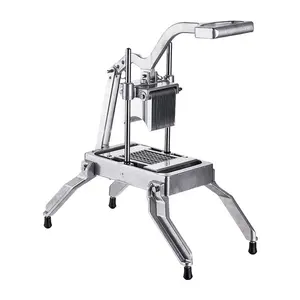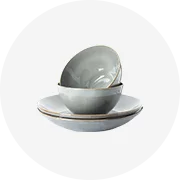Introduction to Commercial Kitchen Tools
The realm of commercial kitchen tools encompasses a vast array of implements designed to facilitate a variety of cooking tasks within a professional setting. These tools are the backbone of any culinary establishment, from bustling restaurants to the dynamic environment of hotel kitchens. Essential for chefs and kitchen staff, these utensils ensure efficiency and precision in food preparation and service.
Types and Applications of Kitchen Tools
Commercial kitchen cooking equipment is tailored to handle the high-volume, rigorous demands of the food industry. This category includes a diverse selection of items such as commercial can openers, commercial cooking utensils, and specialized restaurant kitchen tools. Each tool is designed with a specific purpose, whether it's to expedite the food preparation process or to enhance the presentation and serving of dishes.
Features and Materials
The features of commercial kitchen accessories are numerous, with each piece crafted to offer durability and ease of use. Materials range from stainless steel for its rust-resistant properties to heat-resistant silicone and heavy-duty plastics. For instance, a cheese grater commercial grade model is built to withstand the pressures of grating large quantities of cheese with minimal effort.
Advantages of Professional Kitchen Tools
Utilizing professional kitchen utensils comes with a multitude of advantages. These tools are designed to withstand the high turnover of a commercial kitchen, offering longevity and reliability. Efficiency is another key benefit, as these tools are meant to perform under pressure, helping kitchen staff meet the demands of a busy service period.
Selection Considerations
When selecting commercial kitchen gadgets, it's important to consider the specific needs of the establishment. The type of cuisine served, the volume of customers, and the kitchen's workflow all play a role in determining the most appropriate tools. For example, restaurant tools and equipment are selected based on their ability to support the fast-paced environment of a restaurant, ensuring that chefs can maintain the quality and speed of service.
Conclusion
In conclusion, the array of kitchen utensils commercial kitchens require is vast and varied. These tools are not just implements but vital components that contribute to the functionality and success of a food service operation. By choosing the right mix of utensils, commercial kitchens can ensure a smooth culinary process, from prep to plate.








































 浙公网安备 33010002000092号
浙公网安备 33010002000092号 浙B2-20120091-4
浙B2-20120091-4